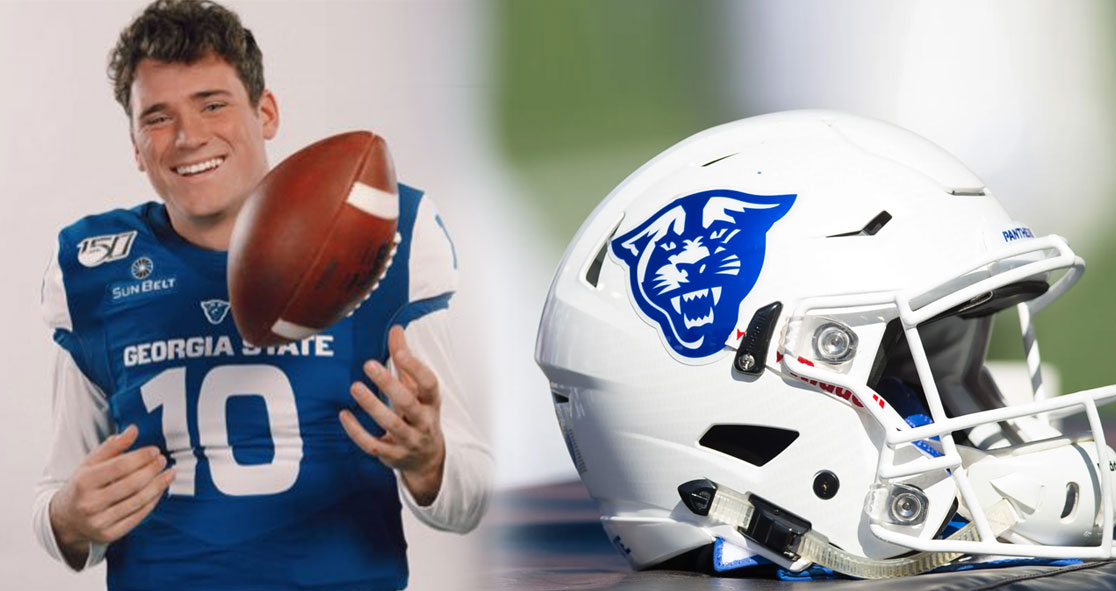A Georgia State University quarterback has been diagnosed with a heart condition due to COVID-19, the infection caused by the novel coronavirus.
On Thursday, Mikele Colasurdo, a freshman, revealed on Twitter that he was diagnosed with a heart condition “as a result of my COVID-19 infection,” adding that he will not be able to play football this year due to the condition.
Colasurdo thanked his trainer and coach for providing the team “a safe environment for us to train and practice. Ultimately it was the procedures and tests set forth by GSU that allowed the doctors to find this condition in my heart and help keep me safe.”
However, he did not mention the type of heart condition he was diagnosed with.
There have been concerns about potential cardiac complications associated with COVD-19, one of which is myocarditis – the inflammation of the myocardium (the muscular tissue of the heart).
Colasurdo, who was enrolled in the 2020 spring semester, was expected to compete for the position of starting quarterback, according to USA Today.
GSU is a member of the Sun Belt Conference, which is still planning to play football this fall.
On Thursday, the GSU program said, “Due to privacy laws, we cannot comment on an individual student-athlete’s health.”
“Georgia State Athletics works with its medical partners to provide the best possible care to its student-athletes,” it added. “The GSU medical staff regularly reviews the latest information and recommendations about SARS-CoV-2 infection in athletes, including information about cardiac concerns, and implements all relevant evaluation and treatment protocols. We believe these protocols are what will keep us safe this season.”
Last week, infectious disease specialists at Emory University raised concerns over fall sports being played in areas that have reported more COVID-19 cases.
Dr. Carlos del Rio, who is on NCAA COVID advisory panel, said many communities have reported high levels of COVID-19 cases levels that exceed what he believes would allow for a safe return to athletic competition.
Chief Medical Officer of NCAA Dr. Brian Hainline said 1 to 2 percent of athletes at NCAA schools tested positive for COVID-19. Of those, he knows that a few of them might have developed COVID-19-triggered myocarditis, which could eventually increase the risk of a sudden heart attack or even death.
Dr. Colleen Kraft, who is also an infectious disease expert at Emory, said she appreciates conferences’ decision to hold off on play this fall “because that keeps the safety of athletes as the No. 1 priority.” She said if they plan to go ahead with fall sports, “there will be transmissions [of COVID-19], and they will have to stop their games.”
Raising concerns over potentially viral-triggered myocarditis, Dr. Kraft said, “We are playing with fire.”
Cardiologist Dr. Jonathan Kim at Emory told reporters last week that myocarditis is a rare inflammation of the heart muscle, typically caused by viruses. He said, “The majority of cases don’t lead to long-term health effects.” “Among hospitalized COVID-19 patients, about 20 percent have evidence of cardiac injury, which can include myocarditis,” Dr. Kim added. “When we diagnose myocarditis in athletes, what we recommend is a minimum of three months of no high-end physical training.”























